Scottish voters rejects independence
Updated: 2014-09-19 13:42
(Agencies)
|
||||||||
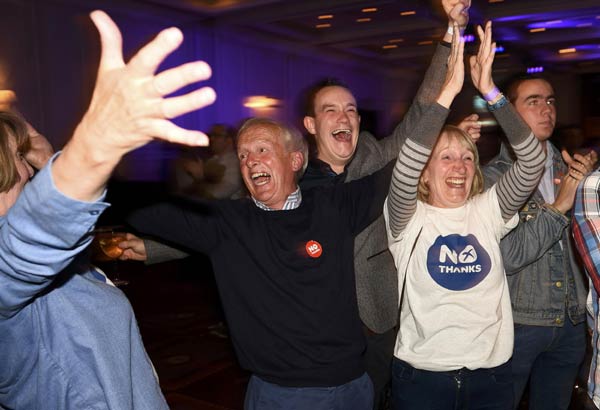 |
|
Supporters from the "No" Campaign react to a declaration in their favour, at the Better Together Campaign headquarters in Glasgow, Scotland September 19, 2014. [Photo/Agencies] |
EDINBURGH - Scottish voters have rejected independence, results showed on Friday.
Results showed support for the union had now exceeded 50 percent of the turnout, meaning that secessionists could not win the vote.
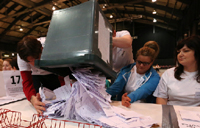 |
| Scots vote in record numbers |
 |
| Fashion sparkles ahead of Scotland referendum |
"Like thousands of others across the country I've put my heart and soul into this campaign and there is a real sense of disappointment that we've fallen narrowly short of securing a yes vote," Scottish Nationalist Party deputy leader Nicola Sturgeon said.
"It looks as if it's not quite been enough and that's deeply disappointing," Sturgeon told the BBC.
Sterling rose sharply while unionist campaigners clapped, cheered and poured drinks as results were announced. Queen Elizabeth and Prime Minister David Cameron were expected to make statements later.
Though the nationalists won Scotland's biggest city, Glasgow, they failed to meet expectations in a clutch of other constituencies.
The campaign for independence had galvanised this country of 5.3 million but also divided friends and families from the remote Scottish islands of the Atlantic to the tough city estates of Glasgow.
Breaking apart the United Kingdom has worried allies, investors and the entire British elite whose leaders rushed late in the campaign to check what opinion polls showed was a surge in support for independence.
Seeking to tap into a cocktail of historical rivalry, opposing political tastes and a perception that London has mismanaged Scotland, nationalists say Scots, not London, should rule Scotland to build a wealthier and fairer country.
Unionists had warned independence would usher in financial, economic and political uncertainty and diminish the UK's standing in the world. They have warned that Scotland would not keep the pound as part of a formal currency union.
Beyond the money and power, the referendum has provoked deep passions in Scotland, drawn in many voters who ignore traditional political campaigns and underscored what London politicians admit is a need for wider constitutional change.
A UNITED KINGDOM?
Scots were asked to answer "Yes" or "No" to the question: "Should Scotland be an independent country?".
Voters lined up at polling stations across Scotland to vote with 4.28 million voters, or 97 percent of the electorate, registered to vote. Turnout hit a record high.
"It seems to me that we are going to have a 'No' majority in this referendum," said Danny Alexander, the Scottish-born Chief Secretary to the Treasury.
"That's great news for Scotland and for the United Kingdom, but also just a start to the serious task to make sure that Scotland gets the additional power that it needs," said Alexander, a Liberal Democrat with a Scottish constituency.
All but two opinion polls - in August 2013 and August 2014 -showed unionists in the lead but a dramatic surge in nationalist support from mid-August prompted Britain to promise more powers to Scotland.
That has angered some English lawmakers in Westminster and British leaders have accepted that even if Scotland votes to keep the union, the United Kingdom's structure will have to change.
Cameron, who acknowledged his unpopularity in Scotland during the campaign, has drawn criticism for both putting the fate of the United Kingdom on the line and then rushing to promise more powers before the vote.
Cameron was largely absent from the campaign, leaving former Prime Minister Gordon Brown to lead the unionist battle cry.
The prospect of breaking up the world's sixth-largest economy and a permanent member of the United Nations Security Council, has stoked concern in the United States and Europe.
The United States has made clear it wants the United Kingdom, it main ally in Europe, to remain together.
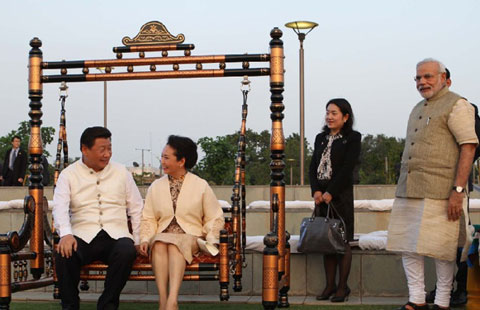
 President Xi and wife play swing in Modi's home state
President Xi and wife play swing in Modi's home state
 9.18 Incident marked in China
9.18 Incident marked in China
 PLA's 'Gold Helmet' air battle contest takes off
PLA's 'Gold Helmet' air battle contest takes off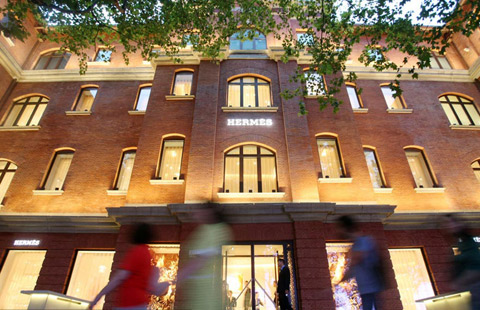
 China's first Hermes Maison opening in Shanghai
China's first Hermes Maison opening in Shanghai
 Get together in space: experts
Get together in space: experts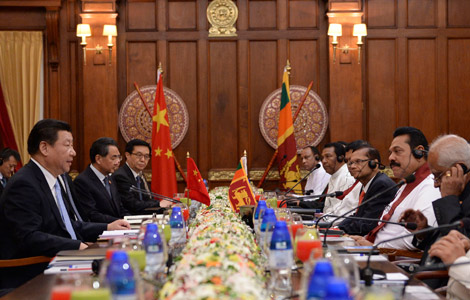
 FTA high on agenda of China, Sri Lanka
FTA high on agenda of China, Sri Lanka
 ZTE's ZMAX makes debut
ZTE's ZMAX makes debut
 Tian'anmen Square dresses up for National Day
Tian'anmen Square dresses up for National Day
Most Viewed
Editor's Picks

|

|

|

|

|

|
Today's Top News
Xi, Modi set friendly tone for visit
China refutes US hacking charges
Chinese naval chief debuts at Seapower forum
Security risks found in half of China's govt websites
Chinese like trade, FDI, not acquisitions: Survey
Multilingual services bills on Brown's desk
Baidu speeds up online commerce
Ma named 'Asia Game Changer of the Year'
US Weekly

|

|







